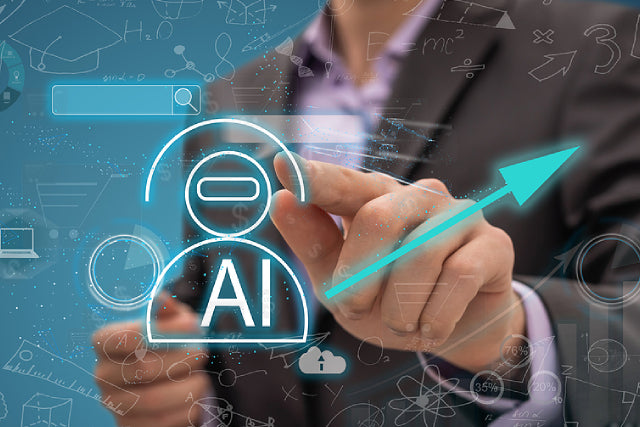The Role Of Artificial Intelligence In IT Security Services

As technology undergoes constant transformation, highlighting the vital role of robust IT security services is crucial. As businesses increasingly rely on digital platforms and data storage, the need for advanced security measures becomes paramount. In recent years, Artificial Intelligence (AI) has emerged as a game-changer in the field of IT security, providing innovative solutions to counteract the ever-growing sophistication of cyber threats.
Understanding the landscape
The digital era has ushered in unprecedented levels of connectivity and efficiency, but it has also exposed organisations to a plethora of cybersecurity risks. Traditional security measures, while effective to a certain extent, often fall short in the face of highly sophisticated attacks. This is where AI steps in, offering a dynamic and proactive approach to cybersecurity.
AI in threat detection and prevention
One of the primary roles of AI in IT security services is in threat detection and prevention. Traditional security systems typically rely on predefined rules and patterns to identify potential threats, leaving them vulnerable to new and evolving attack strategies. AI, on the other hand, leverages machine learning algorithms to analyse vast amounts of data and recognise patterns that might go unnoticed by conventional systems.
Machine learning algorithms enable AI systems to continuously learn and adapt to emerging threats. They can identify anomalies in real-time, allowing for the swift detection of malicious activities. This proactive approach is crucial in today's rapidly changing cybersecurity landscape, where new threats emerge at an alarming rate.
Behavioural analysis and anomaly detection
AI's ability to conduct behavioural analysis and anomaly detection sets it apart in the realm of cybersecurity. By establishing a baseline of normal user behaviour, AI systems can detect deviations that may indicate a potential security threat. This approach minimises false positives and enhances the accuracy of threat identification.
Furthermore, AI-driven anomaly detection is particularly effective in identifying insider threats – malicious activities initiated by individuals within an organisation. Traditional security systems often struggle to differentiate between regular and suspicious behaviour, making them less adept at preventing insider threats. AI's behavioural analysis capabilities provide a more nuanced understanding of user activities, enabling organisations to respond promptly to potential risks.
Automation for rapid response
In addition to detection and prevention, AI plays a crucial role in automating responses to security incidents. Cyberattacks can happen at any time, and the speed at which an organisation responds can significantly impact the extent of damage. AI-powered automation allows for the immediate execution of predefined responses to specific threats, reducing response times and mitigating potential damage.
Automated responses can range from isolating compromised systems to blocking malicious activities in real-time. This not only enhances the overall security posture but also frees up human resources to focus on more complex security tasks that require strategic thinking.
Enhancing threat intelligence
AI contributes significantly to the development and enhancement of threat intelligence. By analysing vast datasets from various sources, AI systems can identify emerging threats, understand their characteristics, and predict potential future attacks. This proactive approach empowers organisations to stay ahead of cybercriminals, continually improving their defence mechanisms.
The role of AI in user authentication
User authentication is a critical aspect of IT security, and AI is transforming the way it is approached. Traditional methods like passwords and two-factor authentication are increasingly being complemented or replaced by AI-driven solutions, such as biometric authentication and behavioural biometrics.
Biometric authentication, which includes fingerprint recognition, facial recognition, and voice recognition, provides a higher level of security compared to traditional methods. AI algorithms can continuously learn and update the biometric profile of users, ensuring a more accurate and secure authentication process.
The future of AI in IT security
As technology continues to advance, the role of AI in IT security services is poised to grow even further. The integration of AI with other emerging technologies, such as the Internet of Things (IoT) and edge computing, will present new challenges and opportunities for securing interconnected systems.
Conclusion
The role of Artificial Intelligence in IT security services cannot be overstated. Its ability to proactively detect and prevent threats, conduct behavioural analysis, automate responses, enhance threat intelligence, and revolutionise user authentication makes it an indispensable tool in the fight against cyber threats.
For organisations in search of comprehensive IT solutions and services, JK Tech emerges as a reliable partner. As a leading IT consulting company in Singapore, JK Tech not only provides an extensive range of products and services to meet the evolving needs of businesses in the digital age but also offers seamless solutions for equipment leasing. Contact us today for a secure and resilient digital future.
